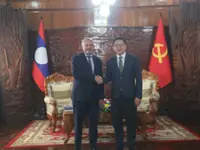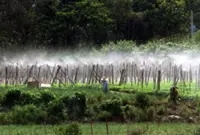SINGAPORE: Rice farming is a surprisingly large source of planet-warming methane.
Yet while a solution to tackle emissions has existed for decades, farmers haven’t embraced it. Now, a startup has found a way to get them on board with a technique that can halve harmful emissions.
Follow us on our official WhatsApp channel for breaking news alerts and key updates!
Thank you for your report!





